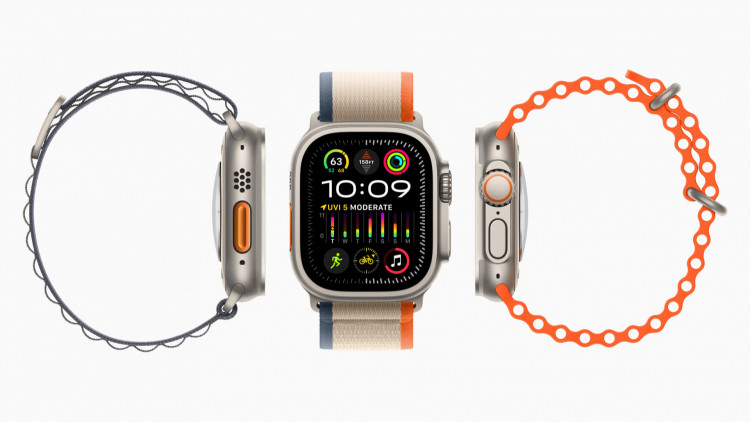Apple has secured a temporary victory as the U.S. Court of Appeals for the Federal Circuit agreed to pause an import ban imposed by the U.S. International Trade Commission (ITC) on certain models of its popular Apple Watches. This decision comes amidst an ongoing patent dispute with medical technology firm Masimo, which has accused Apple of infringing on its pulse oximetry technology.
The dispute has centered around Apple's incorporation of a blood-oxygen sensor in its smartwatches, a feature introduced with the Series 6 model in 2020 and continued in subsequent releases, including the Series 9 and Ultra 2 models. Masimo alleges that Apple not only infringed on its patents but also poached its employees to acquire this technology. The ITC's ruling, which Apple is fervently appealing, had initially led to an import and sales ban on the Apple Watches in question.
The U.S. President Joe Biden's administration had an opportunity to intervene but declined to veto the ban on December 26, allowing it to take effect. In response, Apple promptly requested the pause from the court, emphasizing the urgency of the matter.
This legal skirmish has broad implications for Apple's business. The company's wearables, home, and accessory segment, which includes the Apple Watch, is a significant revenue driver, bringing in $8.28 billion in the third quarter of 2023 alone. The sales ban, therefore, represents not just a legal hurdle but a substantial financial setback.
While Apple has paused sales of the affected smartwatch models directly, they remain available through other retailers like Amazon, Best Buy, Costco, and Walmart. This availability provides a temporary cushion against the ban's impact, though the legal uncertainties continue to loom over future sales and distribution.
The case's complexity is heightened by the ongoing litigation in various courts. A jury trial in California federal court addressing Masimo's allegations against Apple ended in a mistrial in May, and Apple has filed a counter-lawsuit in Delaware, accusing Masimo of patent infringement. These parallel legal battles underscore the high stakes and multifaceted nature of the dispute.
Masimo, for its part, has hailed the ITC's decision as a win for the U.S. patent system and American consumers, emphasizing the importance of protecting intellectual property rights. The firm views the technology in question as integral to its offerings and seeks to defend its innovations vigorously.
As the case progresses, all eyes are on the potential long-term implications for both companies and the broader tech and healthcare sectors. The legal strategies and decisions made in the coming months will likely shape the competitive landscape for wearable technologies and set precedents for how patent disputes are handled in the high-stakes tech industry. For Apple, the immediate goal is to lift the blockade, allowing it to clear existing inventory and plan for future models, while Masimo aims to assert its patent rights and protect its technological innovations. As the legal drama unfolds, the ramifications will ripple far beyond the courtroom, affecting corporate strategies, consumer choices, and the future of tech innovation.






